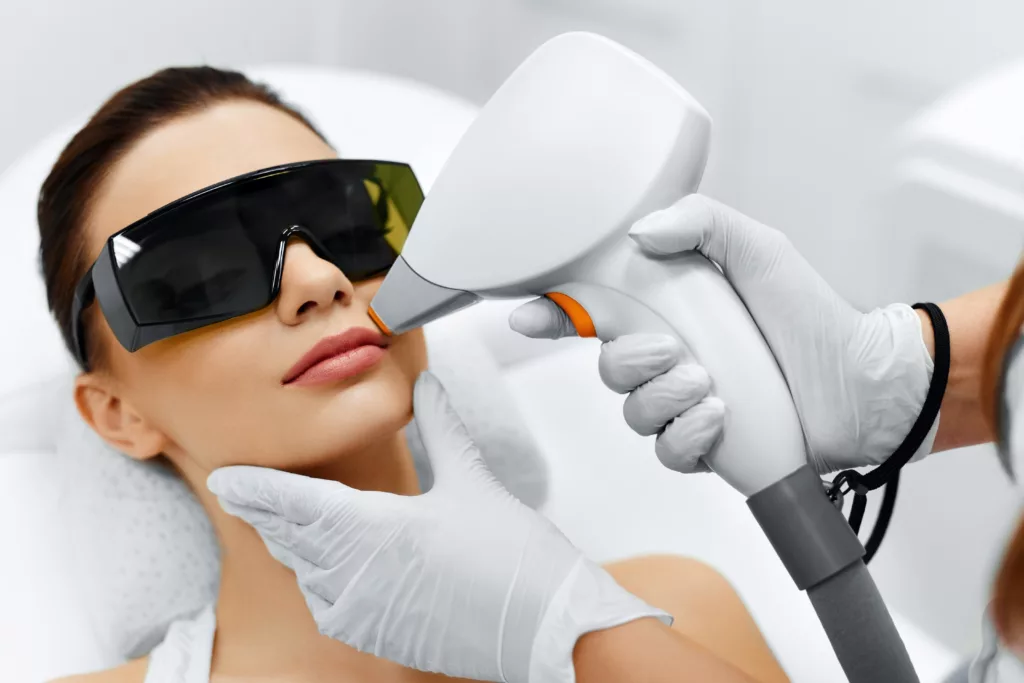
“Can I take antibiotics After Laser Hair Removal?” Read this informative blog to learn more. Laser hair removal is a popular and effective method for achieving long-term hair reduction. However, if you are considering laser hair removal and are currently taking antibiotics or have recently finished a course, there are important factors to consider. In this comprehensive guide, we will explore the impact of antibiotics on laser hair removal treatments, the recommended pre and post-care protocols, and answer common questions to ensure you have the best possible experience and results.
Understanding the Impact of Antibiotics on Laser Hair Removal
Antibiotics, specifically those from the Cycline group such as tetracycline and doxycycline, can make the skin more sensitive to light. Laser hair removal relies on the use of laser beams to target the hair follicles, and if the skin is more photosensitive, the treatment may be less effective and increase the risk of burns or other skin damage. Therefore, it is crucial to avoid laser hair removal treatments while actively taking antibiotics.
Additionally, certain antibiotics, such as those used to treat acne or other infections, can interfere with the effectiveness of laser hair removal. These medications may affect hormone levels, which can impact hair growth and ultimately reduce the efficacy of the treatment. It is important to disclose all medications you are taking to your laser technician to ensure the best possible outcome.
Preparing for Laser Hair Removal: Essential Pre-Care Steps
To optimize the results of your laser hair removal treatment and minimize the risk of complications, it is essential to follow the recommended pre-care guidelines. Here are some important steps to take before your laser hair removal treatment:
- Avoid Sun Exposure: Sun exposure can make the skin more sensitive to light and increase the risk of adverse effects during laser hair removal. It is crucial to avoid sun exposure for at least two weeks before and after your treatment. This includes tanning beds, bronzers, and tanning creams.
- Shave the Treatment Area: The day before or the day of your appointment, ensure that the treatment area is closely shaved. This allows the laser to penetrate the hair follicles effectively without interference from surface hair.
- Discontinue Hair Removal Methods: Refrain from using hair removal methods such as waxing, plucking, threading, or bleaching for at least four weeks before your laser hair removal treatment. These methods can remove the hair follicles and make the laser treatment less effective.
- Inform Your Technician About Medications: It is crucial to inform your laser technician about any medications you are currently taking, including antibiotics. They will assess whether the medication may impact the treatment and provide appropriate guidance.
- Follow Specific Medication Guidelines: Some medications, such as Accutane or prescription strength retinols, may require a longer waiting period before undergoing laser hair removal. It is essential to follow the specific guidelines provided by your technician or consult with your prescribing physician.
Post-Treatment Care: Nurturing Your Skin
After your laser hair removal treatment, proper post-care is vital to promote healing and optimize results. Here are some essential post-treatment care steps to follow:
- Protect Your Skin from the Sun: Avoid sun exposure for at least two weeks following your treatment to minimize the risk of hyperpigmentation or hypopigmentation. Wear sunscreen with a minimum SPF of 30 or higher, preferably with zinc oxide, on the treated area whenever you are exposed to sunlight.
- Avoid Heat Exposure: Steer clear of hot tubs, saunas, steam rooms, and activities that generate excessive heat for at least 48 hours post-treatment. Heat can exacerbate redness and increase the risk of complications.
- Gentle Skincare Routine: Cleanse the treated area gently using a non-exfoliating cleanser on the day of the treatment. Avoid using exfoliating scrubs or brushes for the next 24-48 hours. Pat the skin dry with a soft towel instead of rubbing.
- Avoid Hair Removal Methods: To allow the hair follicles to respond to the laser treatment effectively, avoid electrolysis, tweezing, threading, bleaching, or waxing the treated area between sessions. Shaving is the only recommended method of hair removal during the laser hair removal treatment course.
- Addressing Side Effects: It is normal to experience temporary redness, swelling, and a sensation similar to a sunburn immediately after the treatment. Applying a cold compress or ice pack on the treated area can help reduce swelling and discomfort. If blistering or crusting occurs, contact your technician for appropriate guidance.
Timing Considerations and Frequency of Treatments
The timing between laser hair removal treatments is an important factor in achieving optimal results. The frequency of treatments will depend on the individual and the treatment area. Here are general guidelines for treatment intervals:
- Face (any part), Underarm, Brazilian: Treatments are typically spaced 6 to 8 weeks apart.
- Arm, Legs, Back, Chest, Abs: Treatments are usually spaced 8 to 12 weeks apart.
It is important to note that hair grows in cycles, and multiple treatments are necessary to target all active hair follicles. Your technician will create a personalized treatment plan based on your specific needs and hair growth patterns.
Conclusion
Laser hair removal is a highly effective method for long-term hair reduction, but it is important to understand the impact of antibiotics on the treatment process. By following the recommended pre and post-care protocols, you can ensure the best possible results and minimize the risk of complications. Remember to disclose all medications and adhere to the guidelines provided by your laser technician. With the right approach, laser hair removal can be a safe and effective way to achieve smooth, hair-free skin.
If you have any questions or concerns about antibiotics and laser hair removal, please consult with your laser technician or healthcare professional for personalized advice and guidance.

